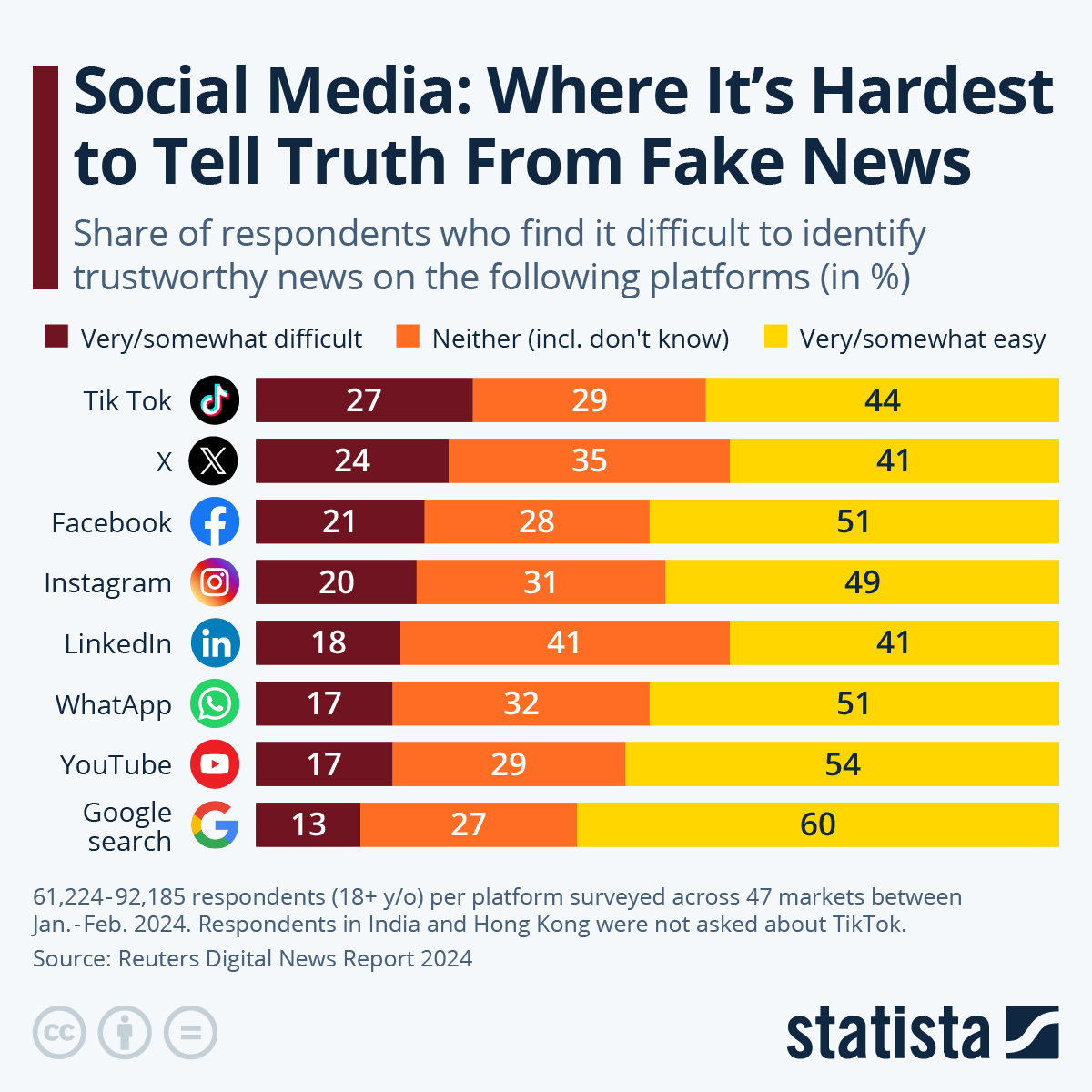
According to a survey conducted in 47 markets for the Reuters Institute Digital News Report 2024, concern over what is real or not on the internet in general is on the rise.
Such concerns were notably prevalent in some of the countries holding elections this year, including South Africa (81 percent), the United States (72 percent) and the United Kingdom (70 percent).
Expanding on the concerns themselves, the writers write:
“Previous research shows that these audience concerns about misinformation are often driven less by news that is completely ‘made up’ and more about seeing opinions and agendas that they may disagree with – as well as journalism they regard as superficial and unsubstantiated.”
Specifically, Statista's Anna Fleck notes that TikTok and X are the hardest social media platforms for identifying whether news content is trustworthy...
You will find more infographics at Statista
As the chart above shows, roughly one in four respondents surveyed in early 2024 said that it was at least somewhat difficult to make the distinction between truth and fake news on the two platforms.
Facebook and Instagram weren’t far behind though, with 21 percent and 20 percent saying the same, respectively.
According to a survey conducted in 47 markets for the Reuters Institute Digital News Report 2024, concern over what is real or not on the internet in general is on the rise.
Such concerns were notably prevalent in some of the countries holding elections this year, including South Africa (81 percent), the United States (72 percent) and the United Kingdom (70 percent).
Expanding on the concerns themselves, the writers write:
“Previous research shows that these audience concerns about misinformation are often driven less by news that is completely ‘made up’ and more about seeing opinions and agendas that they may disagree with – as well as journalism they regard as superficial and unsubstantiated.”
Specifically, Statista’s Anna Fleck notes that TikTok and X are the hardest social media platforms for identifying whether news content is trustworthy…
You will find more infographics at Statista
As the chart above shows, roughly one in four respondents surveyed in early 2024 said that it was at least somewhat difficult to make the distinction between truth and fake news on the two platforms.
Facebook and Instagram weren’t far behind though, with 21 percent and 20 percent saying the same, respectively.
Loading…





